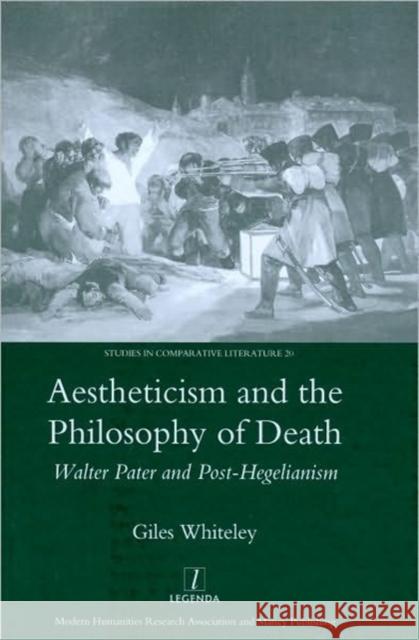Aestheticism and the Philosophy of Death: Walter Pater and Post-Hegelianism » książka
Aestheticism and the Philosophy of Death: Walter Pater and Post-Hegelianism
ISBN-13: 9781906540647 / Angielski / Twarda / 2010 / 188 str.
Aestheticism and the Philosophy of Death: Walter Pater and Post-Hegelianism
ISBN-13: 9781906540647 / Angielski / Twarda / 2010 / 188 str.
(netto: 417,19 VAT: 5%)
Najniższa cena z 30 dni: 418,05 zł
ok. 22 dni roboczych
Bez gwarancji dostawy przed świętami
Darmowa dostawa!
Walter Pater, best known as the author of The Renaissance (1873) and as Oscar Wilde's tutor and friend, was a leading figure in European aestheticism and British fin-de-siecle culture. Despite this, he has received only limited critical attention, and has tended to be read conservatively. Drawing on Pater's unpublished manuscripts, Giles Whiteley challenges this view of Pater as a closeted don who spent the remainder of his life regretting the excesses of his Renaissance.
Focusing on Pater's reading of the German idealist philosopher, G. W. F. Hegel, Whiteley argues that Pater's response to both the philosophical and the ideological legacies of idealism was significantly more advanced than has been hitherto thought.
Presenting a persuasive new reading of the genre of the imaginary portrait - Pater's most elusive form of writing - the book paints a picture of Walter Pater as a truly revolutionary thinker. Pater, like Nietzsche during the same period, breaks with the dialectic as a method. Anticipating the radical critiques of ideology of post- Hegelians such as Derrida and Deleuze, Pater becomes a radical and transgressive thinker in his own right.
"











